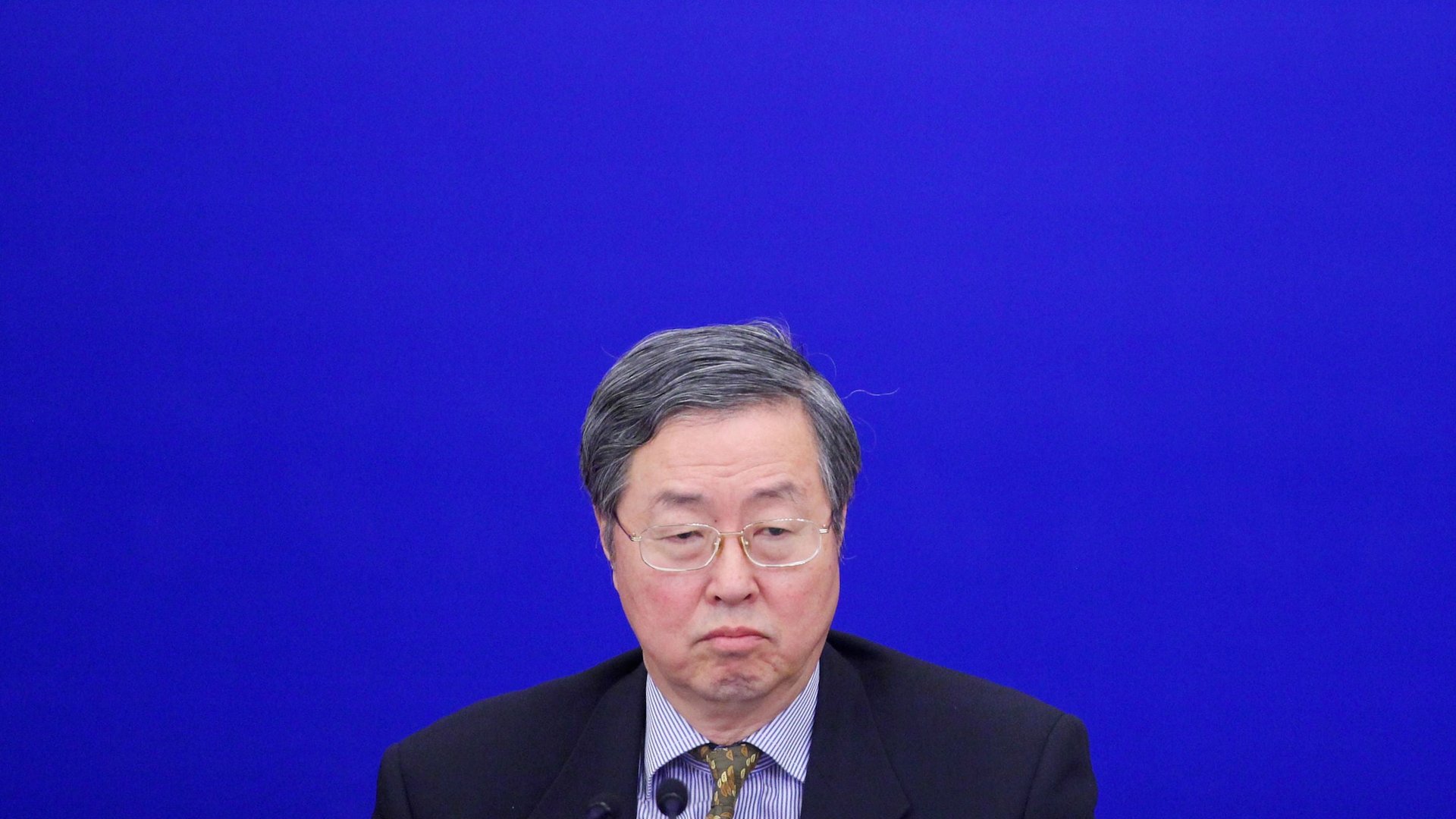China’s central banker is stepping down next month. Who will take his place?
China could be getting its first new central banker in over a decade. In a lengthy and effusive profile of Zhou Xiaochuan, the central bank’s current head, state-published China Securities Journal said Zhou, who at 65 has reached the official retirement age, would be stepping down next month. That will coincide with when Xi Jinping and Li Keqiang officially begin their tenures as the country’s leaders for the next ten years.


China could be getting its first new central banker in over a decade. In a lengthy and effusive profile of Zhou Xiaochuan, the central bank’s current head, state-published China Securities Journal said Zhou, who at 65 has reached the official retirement age, would be stepping down next month. That will coincide with when Xi Jinping and Li Keqiang officially begin their tenures as the country’s leaders for the next ten years.
A new chief for the People’s Bank of China (PBoC) isn’t as big a deal as a new head of the US Federal Reserve or the European Central Bank. Chinese monetary policy is set behind the scenes, generally by the party premier or the State Council, and then executed by the PBoC. Nonetheless, Zhou’s successor could be influential in continuing reforms that he began, like overhauling the exchange rate system and loosening regulation on the use of the renminbi in international trade.
Zhou’s successor will also be tasked with further liberalizing capital controls to make the Chinese currency fully convertible, meaning foreign businesses and investors can freely convert foreign currencies into renminbi. Moreover, the successor is expected to go further on allowing banks to set deposit and lending rates (paywall) so that they can compete with each other better.
The two most oft cited candidates to replace Zhou are both considered advocates of moving towards more market freedom and reducing the amount of control on Chinese banks. Shang Fulin heads the China Banking Regulatory Commission, the top banking regulator, and Guo Shuqing is chairman of the China Securities Regulatory Commission, which overseas China’s stock market.
Guo is the more outspoken of the two. As securities regulator he said he wanted to transform the commission’s role from controlling the country’s equities market to just supervising it. (That hasn’t happened, but observers attribute that more to the slumping Chinese market.) Guo also once appeared on America’s prestigious Charlie Rose Show, where he said China lacks creativity and the government intervenes too much.
Shang, though, is perhaps the more likely to get the nod. He is regarded as cautious and keeps a low profile, making him more likely to fall in line with his elder party colleagues. (Shang is also a former People’s Liberation Army soldier.) A former adviser to the PBoC, said in November that Shang was Zhou’s “most likely successor” whereas Guo would be the “best successor.”
Another contender is Lou Jiwei, head of China’s $300 billion sovereign wealth fund, and a close ally of Wang Qishan, formerly head of financial affairs and now in charge of the country’s anti-corruption agency. Xiao Gang, chairman of the Bank of China (a commercial bank), and Hu Xiaolian, deputy governor of the PBoC, are other possible picks.